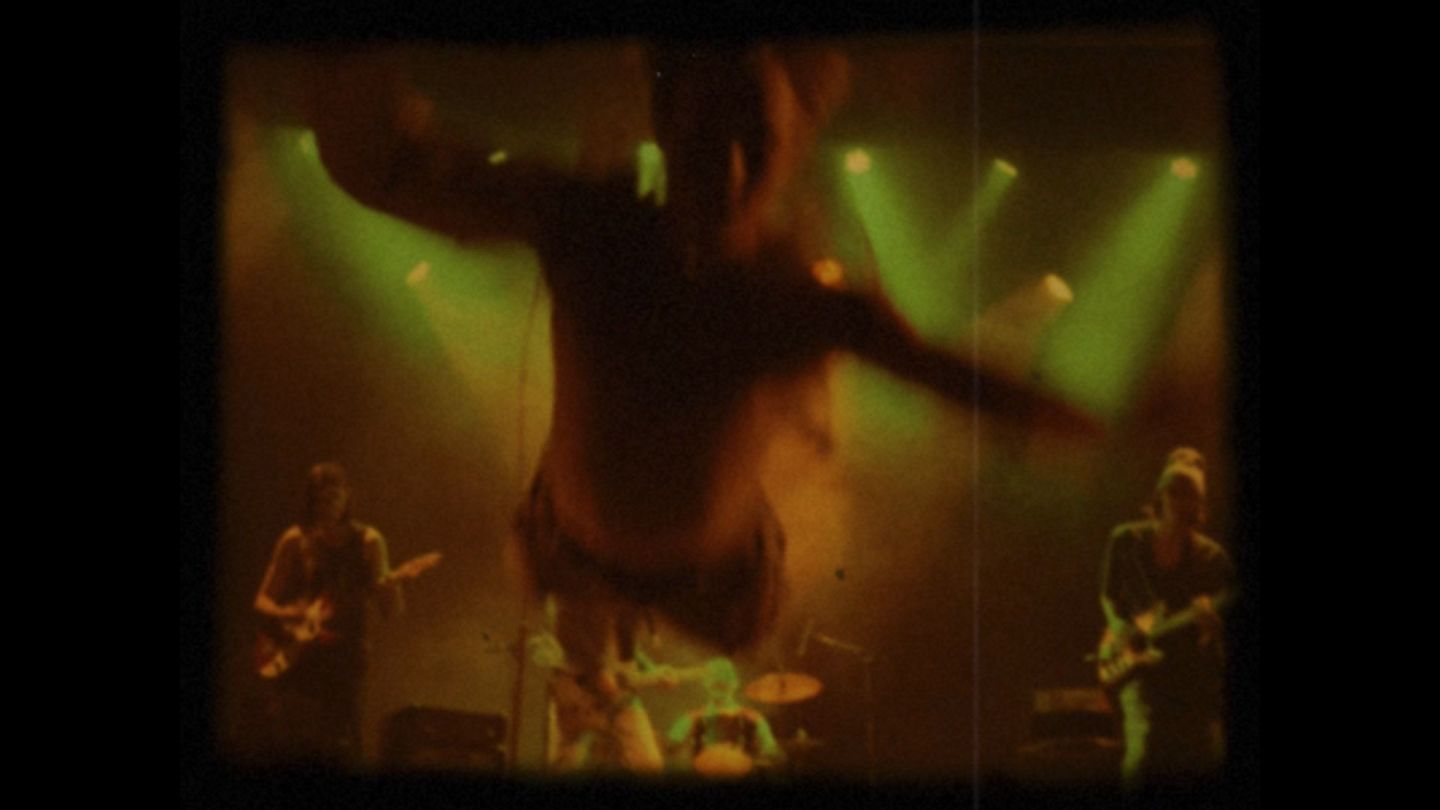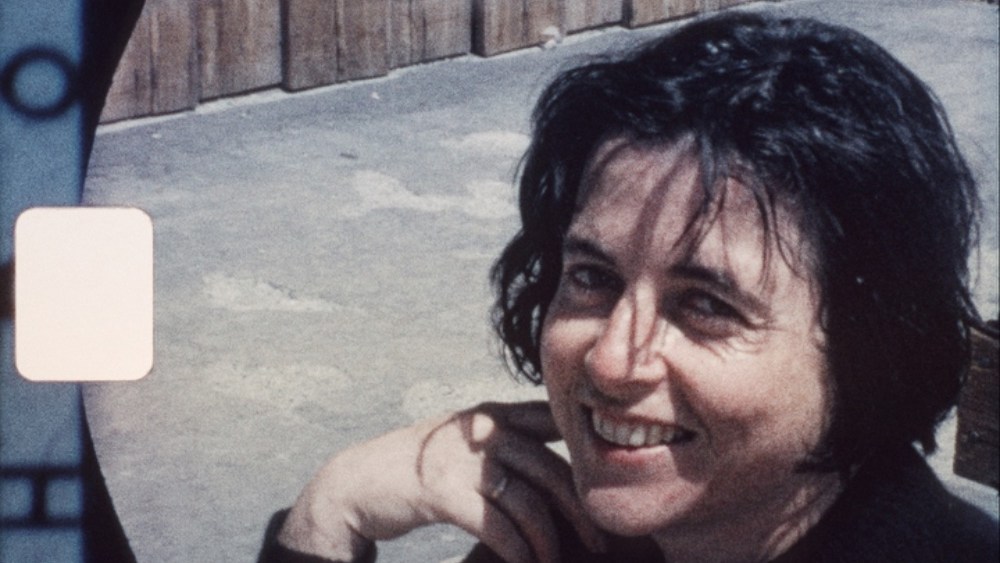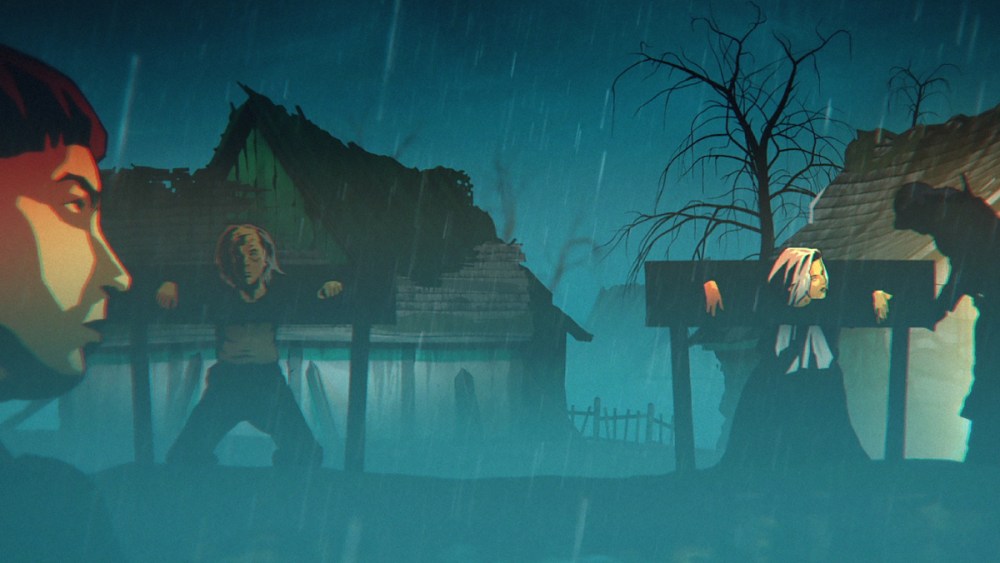BIX “Almost Nirvana,” Velikije Luki
The 29th edition of the Tallinn Black Nights Film Festival (PÖFF) is officially off to the races after opening on Friday on a musical note, courtesy of Catalan artist Maria Arnal.
But the music doesn’t stop there. Helping keep audiences at the fest, which is programmed by the team of Tiina Lokk and runs through Nov. 23, rocking are two energy-packed and tunes-filled Baltic music documentaries that are world premiering at Tallinn early in the program.
At a time of global appetite for and popularity of docs about singers, bands, musical genres, and the like, they could well strike a chord with audiences in the Doc@PÖFF Baltic Competition and a high note with industry folks.
Taking the Tallinn spotlight are films about Estonian band Velikije Luki, featured in Indrek Spungin’s Happiness Is Living in Our Land, and Lithuanian band BIX, the focus of Emilis Vėlyvis’ BIX Almost Nirvana. Both tell the stories of their emergence in the underground and rise to popularity, while highlighting how the regime of the then-Soviet Union cracked down on musical expression and affected the groups.
Punk music and its spirit clearly worried the Soviet rulers. “The KGB even had a special department dedicated to studying its effect on the moral fiber of socialist youth,”
Emilis Vėlyvis’ BIX Almost Nirvana world premieres at Tallinn on Sunday, allowing us to peek behind the Iron Curtain.
BIX tasted freedom, traveling to Berlin after the fall of the Berlin Wall to perform on the same bill as Nirvana.
Vėlyvis, known for his action comedies, such as The Generation of Evil, reunited the Lithuanian cult rock band with frontman Saulius Urbonavičius-Samas after 33 years for his documentary debut, hiring an old bus, filling it with instruments, and bringing back the band’s famous stage prop – a giant inflatable piglet – for an epic road trip. His film also showcases archival footage from the 1990s.
BIX Almost Nirvana
THR asked director Vėlyvis about BIX Almost Nirvana and beyond.
Why did you want to tell the story of BIX and how the band and its punk spirit became popular in and beyond Lithuania?
This is hands down the craziest Post-Punk band story from the entire post-Soviet world. What these guys pulled off in Europe and America in the early ’90s – no other Eastern European band or musician has come close to that, not even to this day. Maybe not even all of them put together. Playing with Nirvana, recording albums, having those opportunities, and still staying true to who they are as artists – that’s just insanely unique. They’re still incredible, and after all these years and everything they’ve been through, they never sold out on their creative vision.
I loved how you also made me learn how the band fit into the Soviet Union and its collapse. Did you always plan to include this political angle or did that emerge more over time?
BIX were basically living and breathing that whole ’90s era. Their music captured and inspired all those feelings of resistance that were bubbling up in Lithuania and pretty much everywhere across the Soviet Union back then. You really can’t separate BIX from all the emotions and rebellious energy of that time.
Music docs seem popular these days. Have you watched many in preparation for this film? Anything you wanted to do really differently from other music films?
So this is actually my first film in this genre as a director. It’s definitely my most honest and most musical piece of work. Everything I’ve done before has been thrillers, detective stories, crime stuff – that kind of thing.

BIX Almost Nirvana
How long did the film take to make and did all the BIX members immediately like the idea of a film
about or what was their reaction?
The whole thing took three years, though we had some pretty big breaks in between. The band formed over 40 years ago, and they always had this dream that someone would make a film about them one day. I got the honor and pleasure of making that happen.
Where did the pig balloon come from? Did I understand correctly that the band has a song called “Pig” and used to have that blow-up pig on its tour bus? Was this a new pig for the film?
The pig has been with them through everything, their whole journey. For them, it’s love, it’s a friend, it’s disappointment, it’s even giving up on dreams. BIX without the pig? That’s like Hollywood without Tarantino.
How much has the music space changed or remained the same after the end of the Soviet Union? Do bands and music in Lithuania today face any modern challenges or difficulties?
Music and the whole scene changed completely. You got new trends, new genres, new generations coming through. Everything shifted so dramatically after the Soviet regime collapsed – totally new movements, alternatives, fresh musical energy everywhere. I’m not a musician myself though, so it’s tough for me to really speak to what challenges people in the music world are dealing with these days.
How early or late in the filming process did you find the title of “Almost Nirvana”?
It just came naturally while we were making the film, based on the real connection between BIX and Nirvana.
What’s next for you?
A short but long-awaited break until my next feature. Taking my wife somewhere exotic and having a great time.

BIX Almost Nirvana
*****
Indrek Spungin’s Happiness Is Living in Our Land world premieres at Tallinn on Monday, and fans and film lovers alike are expected to turn out for the hometown heroes of Velikije Luki.
“In the Soviet Union, the 1980s are awaited with promises from the great leaders of a coming Communist paradise,” highlights a synopsis. “The reality, however, is far from it: poverty, shortages, ideological control, and relentless missile production to cope with the ever-looming threat of nuclear war. In the grim depths of stagnation, in late October 1982, a group of Soviet youths gather in Tallinn and form the punk band Velikije Luki. The band faces arrests, beatings, forced psychiatric treatments, and performance bans, yet they carry on, driven by alcohol-soaked courage and determination. Through a series of lucky coincidences, their small acts of rebellion help set in motion events that eventually contribute to the Soviet Union’s downfall.”
THR asked director Spungin about Happiness Is Living in Our Land and beyond.
Why did you want to tell the story of Luki and how the band and the punk spirit played into the downfall of the Soviet Union?
I actually didn’t know much about Velikije Luki, even though I’d been immersed in the punk scene since I was 12. But when Ivo Uukkivi, Munk — the frontman of Velikije Luki, started sharing those wild, anecdotal stories from the 1980s, it struck me that the rest of the world should hear and see them too.
What really drove me was the idea that their story could be told against the backdrop of the absurdity and collapse of the Soviet empire — in a way that would make it much more than just another rock biography.
In truth, there were many factors behind the fall of the Soviet Union — Ronald Reagan’s Star Wars program and other geopolitical provocations, the drop in oil prices, drastic leadership mistakes like the war in Afghanistan, a misguided alcohol policy, and (Mikhail) Gorbachev’s reforms. But not insignificant was also the punk element — that so-called “rotten Western influence” which reached Estonia via Finnish television and from there spread across the Soviet Union. In fact, the KGB even had a special department dedicated to studying its effect on the moral fiber of socialist youth.
Even if you couldn’t sing about things as you truly felt — without being punished by the authorities — you could sing the official propaganda from Soviet newspapers word for word, with such hysterical precision that the very manner of performance inverted the message itself.
Punk gave young people the courage — together with the courage of alcohol fumes — to question Soviet propaganda and socialist morality. It was a small island of freedom amid a mental prison and the everyday terror of totalitarianism.

Happiness Is Living in Our Land
How long did the film take to make, and where did you find all some of that historic video footage?
This autumn marks four years since the moment I first shared the idea with the Luki members, Ivo and Villu Tamme. The more serious work — developing the script and gathering material — began about three and a half years ago.
As the process went on, I became increasingly convinced that, although we had a wealth of great and funny stories, almost nothing had survived visually – just a handful of photos, one TV appearance, and a single live concert recording – leaving almost no footage on which to build the film.
Ivo managed to find a few 8mm films shot by his old school friend — one of them, where he’s drinking vodka in the forest, even made it into the final cut. Today, Ivo is one of the most beloved male actors in Estonia, but that little vodka improvisation was actually one of his very first film roles.
And then I found myself thinking — what a pity his schoolmate didn’t bother to film more, to capture the band’s beginnings, their first concerts, and all the chaos around it. But from that thought came another: what if we went back in time — and shot all those scenes on 8mm?
Of course, that meant reconstructing all those events from scratch and using young actors. Now, to be honest, I’m not even sure it’s very smart of me to reveal all this here — maybe I should’ve let the audience believe that everything really happened exactly the way it appears on screen.
Did all the Luki members immediately like the idea of a film about or what was their reaction?
The members of Luki embraced the idea with great enthusiasm and were incredibly supportive from the very beginning. With Ivo, we discussed everything — every story, every question — with complete openness from day one. And it really was a lot of fun.
I had a brief moment of doubt — how could I possibly weave all those absurd, almost unbelievable anecdotes into a coherent whole? But once the rise and fall of Luki began to mirror the decline of the Soviet Union, everything fell into place — and from there, the snowball kept rolling.
It was horrible to see all the bans, arrests, and beatings of bands in Soviet times? Do bands and music in Estonia today face any modern challenges or difficulties?
At the moment, it feels like music in Estonia is doing better than ever before. The gap in how local artists think and express themselves compared to their Western counterparts has never been so short — or practically nonexistent.
For example, the new wave music style reached the Soviet Union only in the late 1980s — a full decade after it began in New York and the U.K. In my film, this cultural time lag is illustrated through the phenomenon of stage diving — when a performer jumps into the crowd to be carried by the audience.
The first such jump in the world took place at a Rolling Stones concert in 1964; the first one in the Soviet Union happened twenty years later, at a Velikije Luki concert in 1984. These two jumps perfectly capture the cultural time gap that once separated the two sides of the Iron Curtain.

Happiness Is Living in Our Land
If I start thinking about it now, it’s interesting how punk reached Estonia almost at the same time as its first shoots began to bloom in the U.K. Maybe it wasn’t so much about the speed of how ideas traveled, but rather about the local capacity to receive them. Punk probably resonated most strongly with the sense of frustration and anxiety that plagued local youth.
This is your first or second feature-length film, right? Do you have a new film in the works or plans for it?
Happiness Is Living in Our Land is my second feature-length documentary film.
At the moment, I am developing a new feature documentary about the relationship between Spanish-American social scientist Juan Linz and his Estonian stepfather, Aleksander Kesküla. Against the backdrop of their story unfold some of the most pivotal events of the early 20th century — the First World War, the October Revolution, the Spanish Civil War, and others.
From the very first days of the First World War, the German Empire was looking for someone capable of sparking a revolution in Russia and forcing the country to withdraw from the war with Germany — so that the Germans could focus their forces on fighting the British and the French. It was Aleksander Kesküla who introduced Vladimir Lenin to the German authorities as the only possible revolutionary with the willpower and influence to make such an upheaval happen.
A former Bolshevik himself, Kesküla saw in the chaos of revolution an opportunity for Estonia to break away from Tsarist Russia and, together with Finland and Sweden, form a new Nordic superstate capable of resisting both German and Russian dominance. Not all of his plans came to fruition, yet parts of them did — leaving a lasting mark on history.
I am also currently working on the script for a short thriller that explores the dynamics of a love triangle through the act of lying — one of the central flaws of human nature, from which most great troubles tend to begin. The film is set in 1935 Tartu and at the University of Tartu, where, a year earlier, Professor Lazar Gulkowitsch, exiled from Germany, had established a chair of Judaic Studies within the Faculty of Philosophy. At a time when antisemitism was sweeping across Europe, this was a decision both courageous and seemingly illogical.
A discussion in Professor Gulkowitsch’s seminar on the Ninth Commandment — which forbids bearing false witness against one’s neighbor — provides a conceptual framework for the events unfolding beyond the lecture hall. What begins as an academic thought experiment — can a lie ever be justified? — becomes, through a love triangle between a student named Lennart, his Jewish fiancée, and her sinister friend, a deeply personal ordeal where philosophy and desire intertwine with guilt and blood.
Share this content:




Publicar comentário